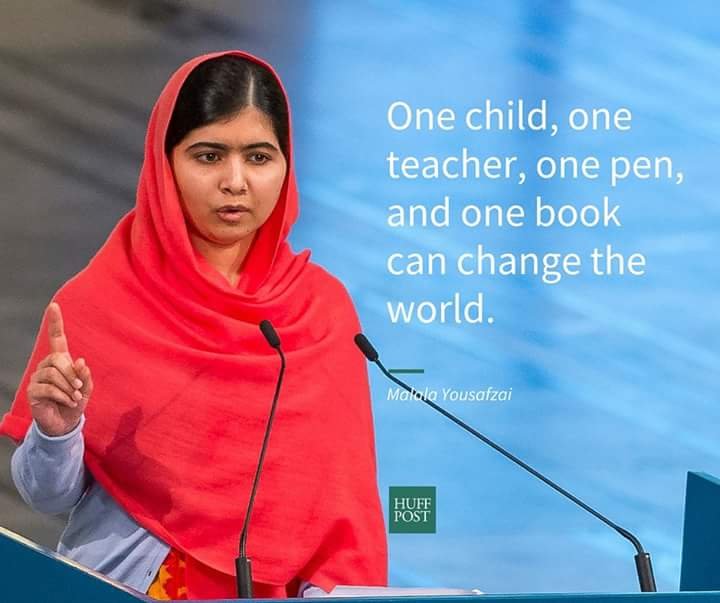
“One child, one teacher, one book and one pen can change the world.” These are the words of one of the world’s most inspirational teenagers- a young woman who has already changed the world at the remarkable age of 16.
A teenager who is the youngest nominee for the Nobel Peace Prize, winner of the Children’s Peace Prize and, following in the footsteps of Nelson Mandela and Bill Clinton, will receive Ireland’s distinguished Tipperary International Peace Prize at a ceremony later today.
Meet Malala Yousafzai. Survivor of a Taliban assassination attempt at age 14. Targeted for her campaign for education and girls’ rights, Malala was shot in the head on her school bus – an action that could potentially have destroyed her life but one that has instead strengthened her resolve to fight back with her books and her pen.
Friday, 12 July 2013 was pronounced Malala Day in honour of this young Pakistani girl who has become a hero in her fight for girls’ education, a path that almost cost her life. In New York, to mark the occasion, 500 young people aged 12-25 from around the world gathered for a Youth Assembly, many supported by UNICEF. For the first time key rooms in the UN were off-limits to adults and safe spaces were created for young delegates to raise and discuss issues of concern.
This occasion also marked Malala’s 16th birthday which she celebrated by giving her first high-level public appearance at UN headquarters to deliver a statement on the importance of education. UN Secretary General Ban Ki-moon also addressed the session, calling Malala “our hero” while Gordon Brown, UN Special Envoy for Global Education, delivered the words that the Taliban “never wanted you to hear, happy 16th birthday Malala!”
She spoke of the goals of peace, education and equality. The conflict in Syria alone has forced nearly one million child refugees into neighbouring countries; 57 million children remain out of school (the majority of them girls) and disparities between the world’s richest and poorest children are growing daily. This is the world that our children live in today but hopefully not the one future generations will inherit.
Malala has demonstrated the vital importance of including youth in these discussions about how to change our world. She has taken on issues of global importance and firmly believes that it starts with education. UNICEF believes that sustainable development starts with safe, healthy and well-educated children and the voices of children and youth are critical in our efforts to build a sustainable future for all.
Malala is just one of these voices but her courage and determination to be heard despite the violent actions of those who tried to silence her are extraordinary. Our vision of a sustainable future demands extraordinary ideas and champions for change – children and young people can full these roles fearlessly and be our partners in ensuring a better world for all children, everywhere.
Hi! I am a robot. I just upvoted you! I found similar content that readers might be interested in:
https://www.unicef.ie/stories/one-child-one-teacher-one-book-and-one-pen-can-change-the-world/